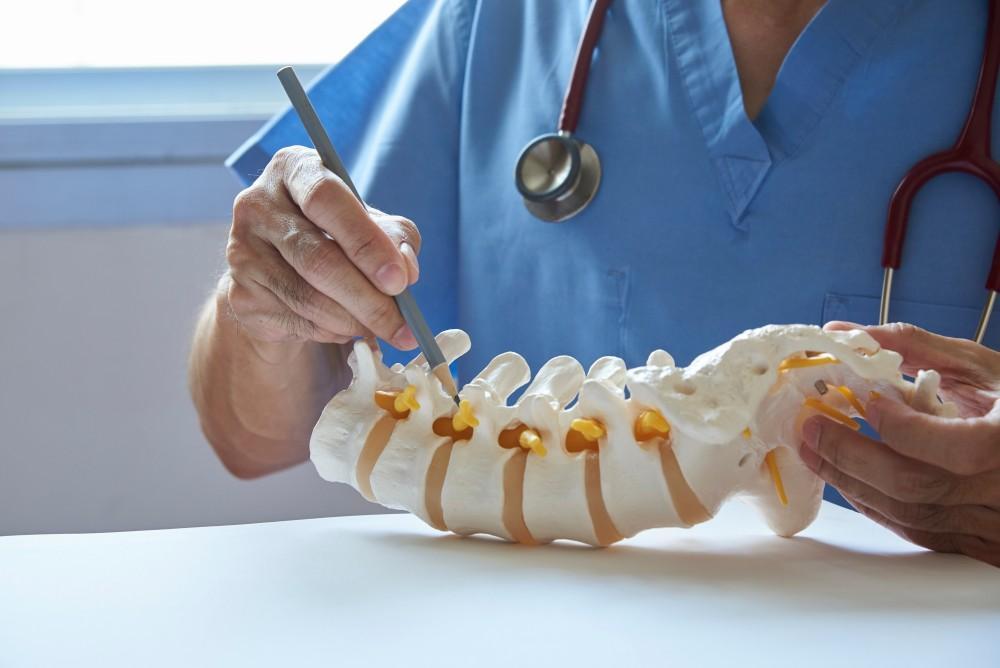
When to Consider Back Surgery for a Herniated Disc

It’s possible a herniated spinal disc may cause no symptoms, but you’re more likely to experience a great deal of pain that comes from the disc material impinging upon (“pinching”) the spinal nerve root in its location. The pain travels, too, from the root into the peripheral areas of the body the nerve serves.
At Vertrae®, with locations in Dayton and Springfield, Ohio, board-certified neurosurgeon Dr. Kamal R. Woods deals with herniated discs day in and day out, and he offers numerous treatment options from the conventional to the surgical. Here’s when you should consider back surgery to heal your spine.
How your spine lines up
Your spine reaches from the base of your skull to your coccyx. It’s strong and stiff so you can stand up straight and flexible enough to bend, flex, and twist. An adult spine has 24 interlocking bony vertebrae, each pair separated by cushiony intervertebral discs that support your body’s weight and act as shock absorbers when you move.
The outer part of each disc is firm, while the inner material is more gel-like. If the outer part tears due to an injury or the wear-and-tear from a lifetime of use, the gel can seep out and impinge upon spinal nerves, causing pain.
The vertebrae are locked together by two small, bony facet joints at the top and bottom, and the linked chain forms the spinal column, which surrounds and protects the spinal canal. The spinal cord runs down the length of the canal, with peripheral nerves exiting the spine at specific locations. If disc material presses on a nerve root in the canal or an exiting nerve, the pain can radiate out along the nerve’s path to those regions, a condition called radiculopathy.
Herniated disc symptoms
The most common symptom of a herniated disc is pain, which can be mild and intermittent or severe and unrelenting. You usually feel it on just one side of the body, which often radiates (travels) into an arm or leg along the nerve’s path.
A common example of such radicular pain is sciatica. The sciatic nerve starts in your lumbar spine and travels through your buttocks and down the outside of your leg. If the L4-L5 disc herniates, it impinges on this nerve, sending pain all the way down into your foot.
Other symptoms you may experience with a herniated disc include:
- Sudden pain with a cough or sneeze
- Inability to stay in one position for long
- Muscle weakness
- Numbness and/or tingling/burning sensations
- Balance issues from altered gait
- Limping from weakness and pain
- Poor posture
Each person has their own combination of symptoms, some of which may be caused by other problems, which is why it’s important to get an accurate diagnosis before starting treatment.
Will my herniated disc go away on its own?
It’s possible that, with rest, time, and conservative treatments, your disc will heal on its own.
At Vertrae®, we always start with conservative options if you need treatment, which may include:
- OTC pain relievers and anti-inflammatories
- Corticosteroid and epidural injections
- Muscle relaxers
- Physical therapy
We also advocate lifestyle changes, including the following:
- Losing excess weight, which compresses the spine
- Quitting smoking, a major risk for disc degeneration
- Doing low-impact exercise to prevent muscle atrophy
- Performing exercises to strengthen your core muscles
These first-line treatments fail in a small percentage of cases, and Dr. Woods may recommend surgery. One such procedure is a microdiscectomy, which relieves the pain and pressure. It’s a minimally invasive procedure that removes the extruded disc material impinging the nerve, thereby relieving pressure and eliminating pain.
If your condition isn’t advanced, Dr. Woods may recommend rest and limited activities for a short period of time. He may also recommend OTC anti-inflammatories or prescription muscle relaxers to help with the pain. Physical therapy is a good option, too, as you learn stretching and strengthening exercises that take the pressure off the nerve.
The next level of treatment is therapeutic injections. These include:
- Epidural corticosteroid shots into the space around your spinal cord to relieve inflammation and thereby pain
- Nerve blocks, an injection of a pain reliever directly into the affected nerve
- Trigger point injections, pain-relieving medication injected into nearby muscle
If none of these work and you need surgery to address your pinched nerve, you’re in good hands. Dr. Woods has extensive experience performing spinal procedures, including minimally invasive and robotic options. Two common procedures for DDD include spinal fusion (joining of vertebrae) and artificial disc replacement.
If your back is hurting, you haven’t injured yourself, and you’re near or in middle age, chances are you may have degenerative disc disease. To get a proper diagnosis and effective treatment, give Vertrae® a call at either location to schedule a consultation with Dr. Woods, or book online with us today.
You Might Also Enjoy...


5 Common Signs of a Compression Fracture

Using Your Own Platelet-Rich Plasma to Alleviate Your Back Pain

A Closer Look at Your Sacroiliac Joint

4 Benefits of Outpatient Spine Surgery

